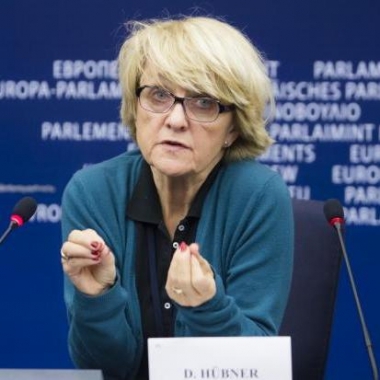-
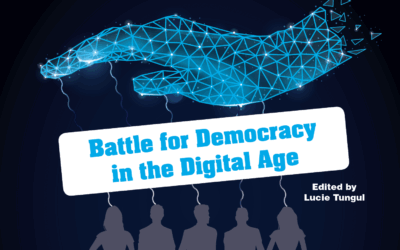
Battle for Democracy in the Digital Age
Collaborative
08 May 2025
-
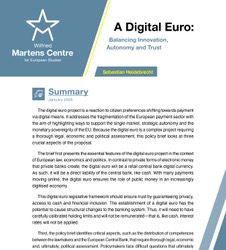
A Digital Euro: Balancing Innovation, Autonomy and Trust
Policy Briefs
16 Jan 2025
-
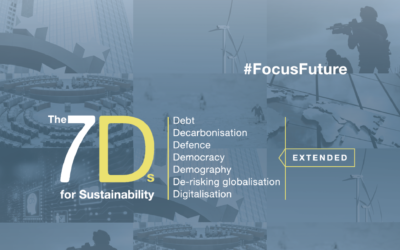
The 7Ds Extended
The 7Ds
31 Dec 2024
-
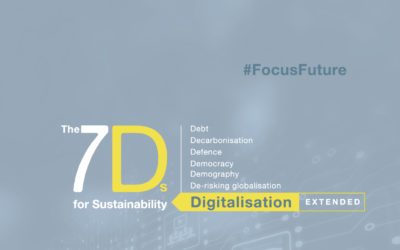
The 7Ds – Digitalisation Extended
The 7Ds
30 Dec 2024
-
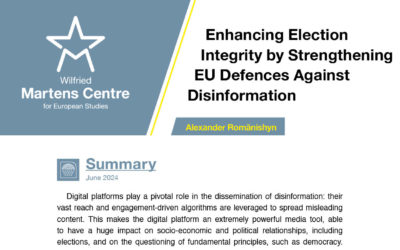
Enhancing Election Integrity by Strengthening EU Defences Against Disinformation
Policy Briefs
26 Jun 2024
-
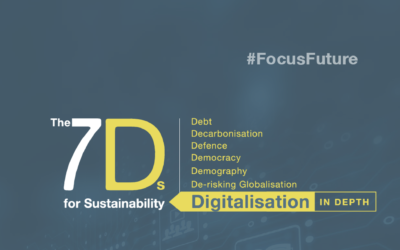
The 7Ds – Digitalisation in Depth
The 7Ds
22 Apr 2024
-
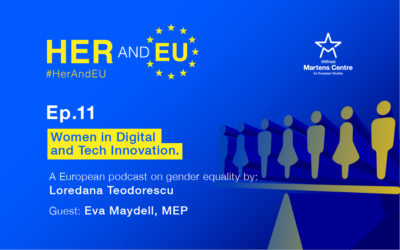
Women in Digital and Tech Innovation with Eva Maydell
Her and EU
30 Mar 2023
-
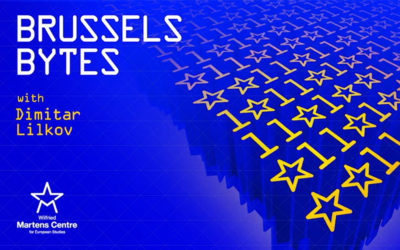
The Digital Markets Act with Andreas Schwab, MEP
Brussels Bytes
08 Dec 2022
-
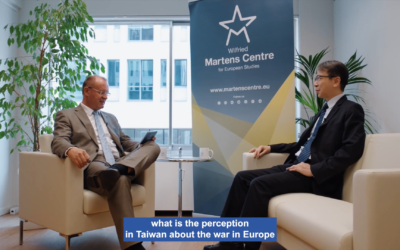
Thinking Talks Ep.6 with Ming-Yen Tsai, Ambassador, Taipei Representative Office in the EU & Belgium
Multimedia - Thinking Talks - Ukraine
27 Jul 2022
-
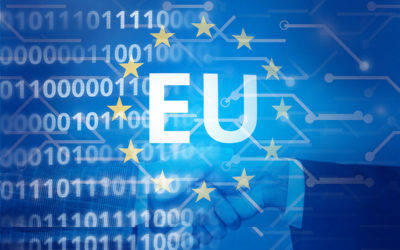
Cyber Diplomacy: a Key Field for European Diplomacy
Blog
05 Jul 2022
-

Data Protection and Cybersecurity with Vagelis Papakonstantinou
Brussels Bytes
10 Jun 2022
-

Cybersecurity and 5G – What is at Stake for the EU and the US?
Multimedia - Other videos
01 Jun 2022
-
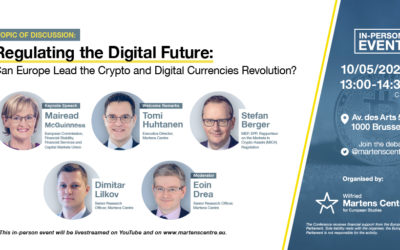
Regulating the Digital Future: Can Europe lead the Crypto and Digital Currencies Revolution?
Live-streams - Multimedia
10 May 2022
-
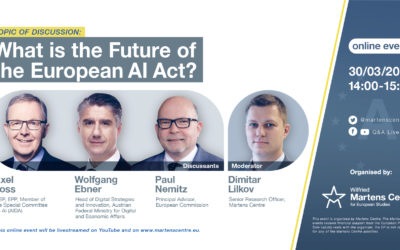
What is the Future of the European AI Act?
Live-streams - Multimedia
30 Mar 2022
-

Russian War Propaganda and Online Disinformation with Monika Richter
Brussels Bytes - Ukraine
16 Mar 2022
-

The Facebook Files and Algorithmic Decision-Making with Angela Müller, Ph.D.
Brussels Bytes
27 Jan 2022
-

The EU’s Failure to Protect Our Online Privacy and Data Rights, with Dr. Johnny Ryan
Brussels Bytes
21 Oct 2021
-

[Europe Out Loud] Technopopulism: the new logic of democratic politics? A chat with Carlo Invernizzi Accetti
Europe out Loud
23 Jul 2021
-

GDPR reform and European digital sovereignty with Axel Voss
Brussels Bytes
13 Jul 2021
-
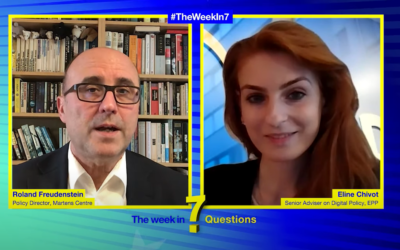
The Week in 7 Questions with Eline Chivot
Multimedia - Other videos
09 Jul 2021
-
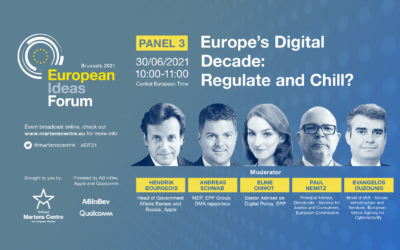
EIF21 Panel 3 – Europe’s Digital Decade: Regulate and Chill?
Live-streams - Multimedia
30 Jun 2021
-

Green and Digital Transition: Challenges and Prospects
Live-streams - Multimedia
15 Jun 2021
-
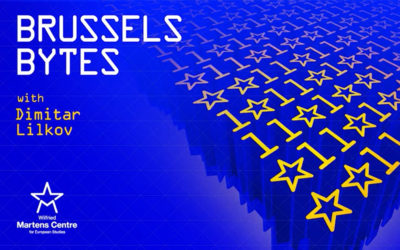
AI and Biometric Mass Surveillance with Ella Jakubowska
Brussels Bytes
11 May 2021
-
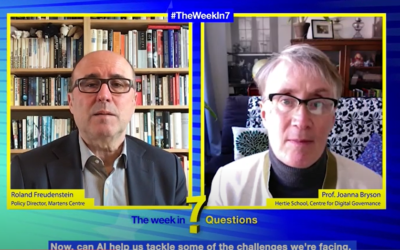
The Week in 7 Questions with Prof. Joanna Bryson
Multimedia - Other videos
30 Apr 2021
-

Artificial Intelligence and Governance: Going Beyond Ethics
Live-streams - Multimedia
29 Apr 2021
-

Disinformation, regulating digital companies, and election interference online with Felix Kartte
Brussels Bytes
12 Apr 2021
-

App Wars: The EU Must Prepare for the Digital Skirmish
Blog
25 Mar 2021
-
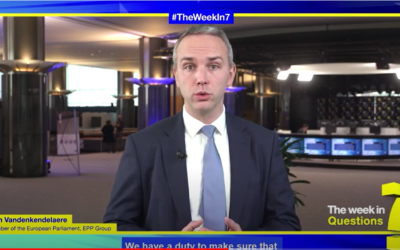
The Week in 7 Questions with Tom Vandenkendelaere
Multimedia - Other videos
05 Mar 2021
-
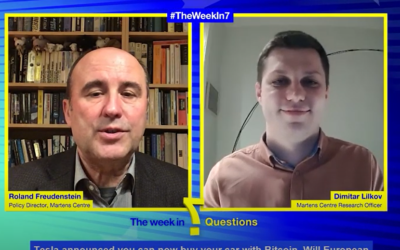
The Week in 7 Questions with Dimitar Lilkov
Multimedia - Other videos
12 Feb 2021
-

Big Tech and Free Speech
Live-streams - Multimedia
12 Feb 2021
-

Safeguarding the Algorithm of Democracy
Blog
21 Jan 2021
-
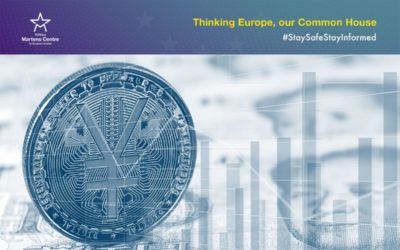
China’s Digital Currency: Mao Would be Proud
Blog
14 Jan 2021
-
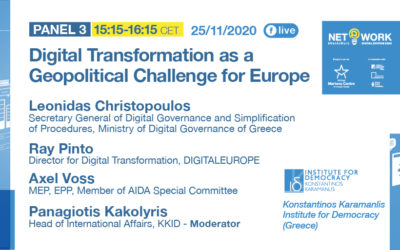
NET@WORK Day 1 – Panel 3
Live-streams - Multimedia
25 Nov 2020
-

Is the Digital Markets Act giving the European Economy and Consumers what they need right now?
Live-streams - Multimedia
17 Nov 2020
-

A Transatlantic Agenda for Digital Transformation
Blog
13 Nov 2020
-

Artificial Intelligence: Threats and Opportunities for Europeans
Collaborative
01 Dec 2022
-
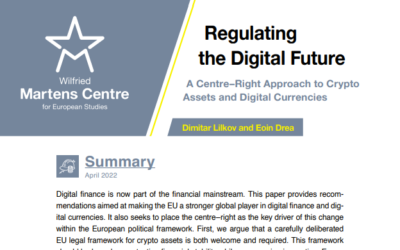
Regulating the Digital Future: A Centre–Right Approach to Crypto Assets and Digital Currencies
Policy Briefs
27 Apr 2022
-
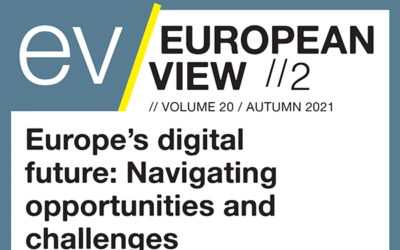
Europe’s digital future: Navigating opportunities and challenges
European View
26 Oct 2021
-
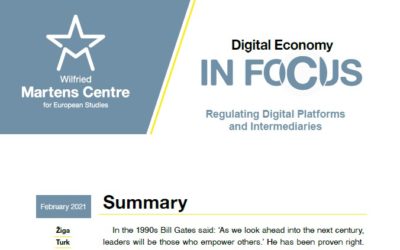
Digital Economy: Regulating Digital Platforms and Intermediaries
IN FOCUS
24 Feb 2021


